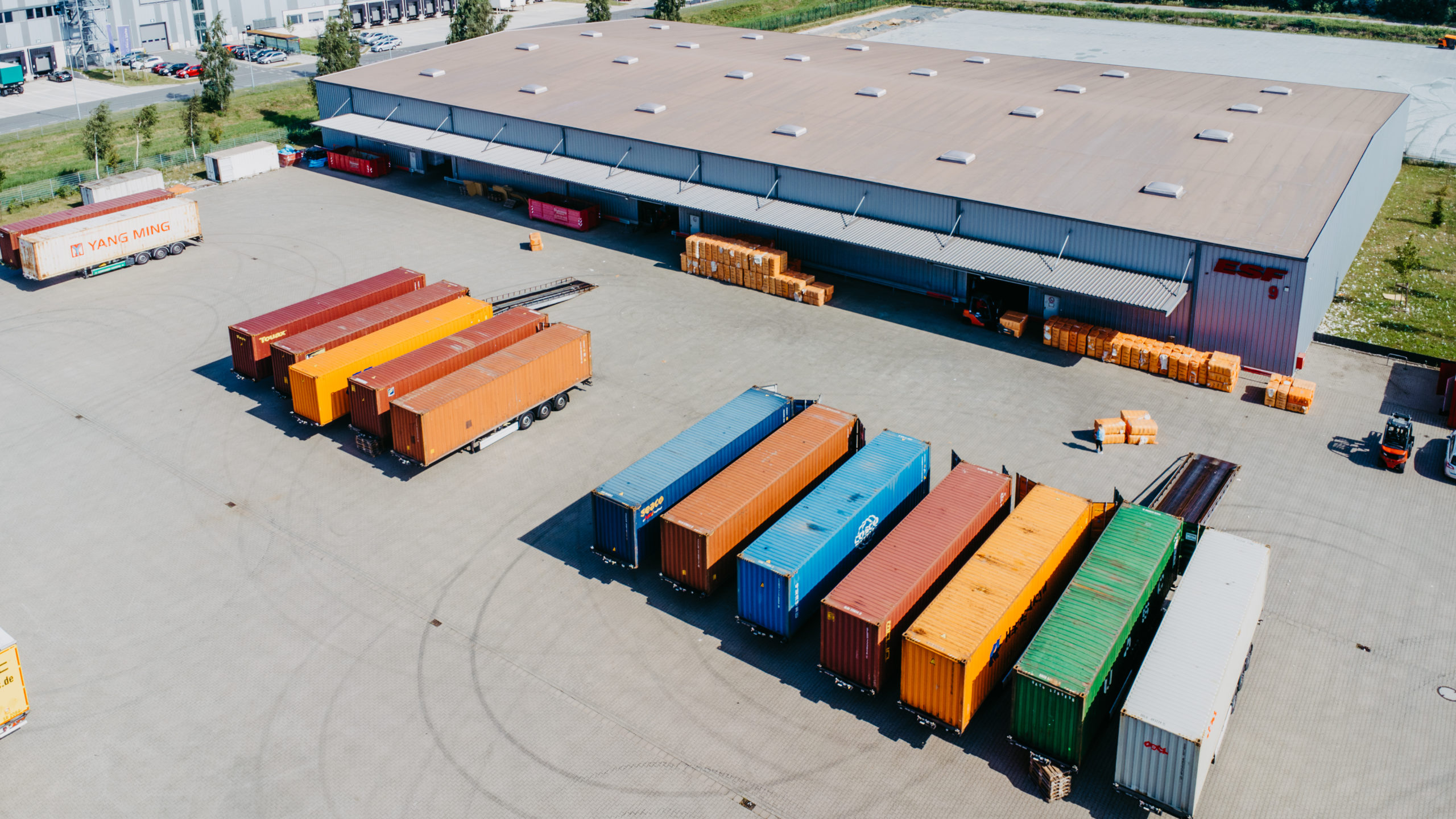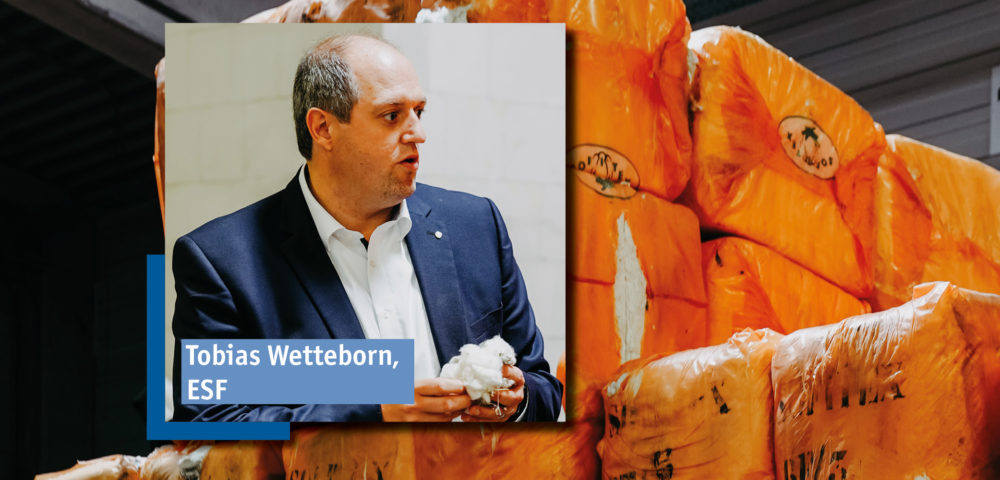– Interview with Tobias Wetteborn, Managing Director ESF –

ESF is an important local logistics partner for the cotton industry in Bremen. With more than 160 years of experience, the company provides logistics handling services for cotton, and more recently also other fibres.A member of the Bremen Cotton Exchange, ESF has been active for many years on the association’s logistics committee. Tobias Wetteborn took over as the company’s new Managing Director at the start of 2023. The editors at the Bremen Cotton Report spoke with the logistics committee representative about current and future challenges in logistics, with particular focus on cotton.
Bremen Cotton Report: The subject of logistics received a great deal of attention during the Coronavirus pandemic, not least because prices skyrocketed. Has the situation returned to normal now?
Tobias Wetteborn: This attention resulted from the recognition and appreciation of the importance of logistics. Up to this point, hardly anyone had seen the vulnerability of supply chains as a realistic global danger. As a consequence, the focus was on the availability of goods and prices shot up massively.
Since the supply chains have stabilised again, shipping costs have almost returned to pre-Covid levels. However, inflation and rising costs are currently making things challenging for every market player. Most customers are therefore focusing once more on efficiency and cost reduction.
Our customers do appreciate us, but increasing costs are having an impact on the margins which can’t really be maintained at the same level as previous years.
Congestion at bottlenecks such as the Suez and Panama canals made the headlines. Do you expect to see an increase in this type of phenomenon?
The indicators for this are growing with each passing day. Increasing volumes of traffic, bigger ships, greater time pressure, a rapidly changing environment, changing political landscapes and potential pandemics are just some of the factors. This can and will result in more headlines like these over the years to come. That’s why the task is now to find alternatives and split the risks in advance. I also see this as the responsibility of a logistics provider.
What risks and challenges will cotton shipping face in the next few years?
Cotton is a niche product from the raw materials sector. It basically requires the same risk assessments as any other raw material. It has already been categorised by some shipping companies as hazardous because of the fire risk, and shipments are therefore no longer that easy to book. This limits the choice a little.
Due to climate change, there is also the risk of cotton becoming less readily available. As a result, more deliveries may be made in larger batches.
Efforts by shipping agents to maximise container loading may also make unloading more time consuming and lead to a greater risk of goods being damaged.
In addition, certain shipping companies have focused on individual routes. This limits the choice of potential partners and leads to increased pricing on these routes.

What technical developments have there been in logistics over recent years?
Technical progress is naturally also noticeable in our industry – keyword digitalisation. There are now very many options for making our life easier and I am convinced that we have to take this progress on board. At the same time, we cannot automate everything. In this respect, I am grateful that I work for a family-owned company where people continue to take centre stage. Without the expertise of our longstanding specialists, this company would be missing its ‘soul’.
How do you see the current global market situation and its impact on the cotton market from the perspective of a logistics provider?

The amount of cotton in Bremen has decreased over the past few decades. In recent years, however, the volume has settled at a stable level. This is most notably due to processing being relocated to other parts of the world, and this has resulted in more direct shipments without any handling in Bremen.
In the field of cotton handling at the warehouse, there are only a few specialists who know their way around. Handling usually takes place in spikes, as all shipments from one provenance are transported on the same ship. This is where the flexibility of a good logistics provider pays off in terms of meeting customer requirements.
To what extent does the discussion about sustainability in supply chains also affect you as a logistics company?
The subject of sustainability affects us a great deal. As a logistics company, we are striving in our own interest to minimize our CO2 footprint. We are continually expanding
our e-mobility fleet, for example, as well as digitalising processes in order to work in a paperless way and encouraging our employees to reduce energy, water and heating consumption in their area to an absolute minimum.
Customers would also like to see further developments in this direction, as is shown by the demand for certifications. In these audits, the focus is very much on topics such as sustainability and this is increasing every year.
Nevertheless, there is currently no major trend towards sustainable handling, as end customers are not prepared to bear the additional costs for this. In addition, the competition in the raw materials sector is international, not just European.
Thank you very much for talking to us!
Find out more on the website of ESF.

